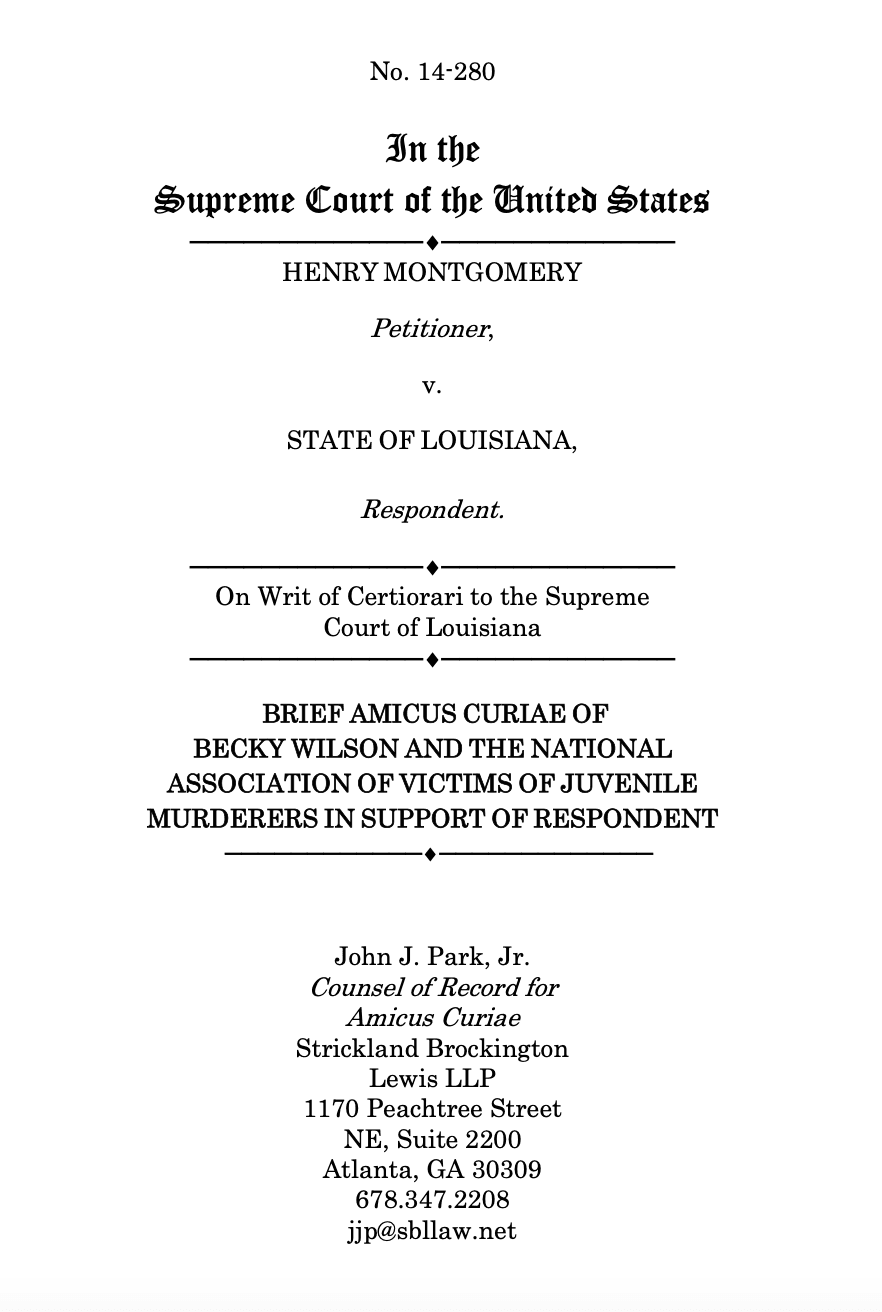
Summary of Argument
"No one, not criminal defendants, not the judicial system, not society as a whole is benefited by a judgment providing that a man shall tentatively go to jail today, but tomorrow and every day thereafter his continued incarceration shall be subject to fresh litigation on issues already resolved.” Mackey v. United States, 401 U.S. 667, 691 (1971)(Harlan, J., concurring in part and dissenting in part).
Some 55 years ago, Petitioner Henry Montgomery, who was then 17 years old, shot East Baton Rouge Deputy Sheriff Charles Hurt to death. Notwithstanding the finality of his resulting conviction and the rejection of several petitions for collateral relief, he now seeks relief from his sentence relying on this Court’s three-year old ruling in Miller v. Alabama. But making Miller retroactive will not make Montgomery’s murder of Deputy Hurt any less a crime. Nor does it enhance that truth finding function of the trial process
In addition, making Miller retroactive will deprive surviving family members of the finality that they have had for years. When a juvenile murderer killed their loved one, the surviving members were traumatized. Reopening these cases for resentencing will retraumatize them, forcing them to relive the events that traumatized them in the first instance. These surviving family members deserve no less respect than the juvenile murderers.